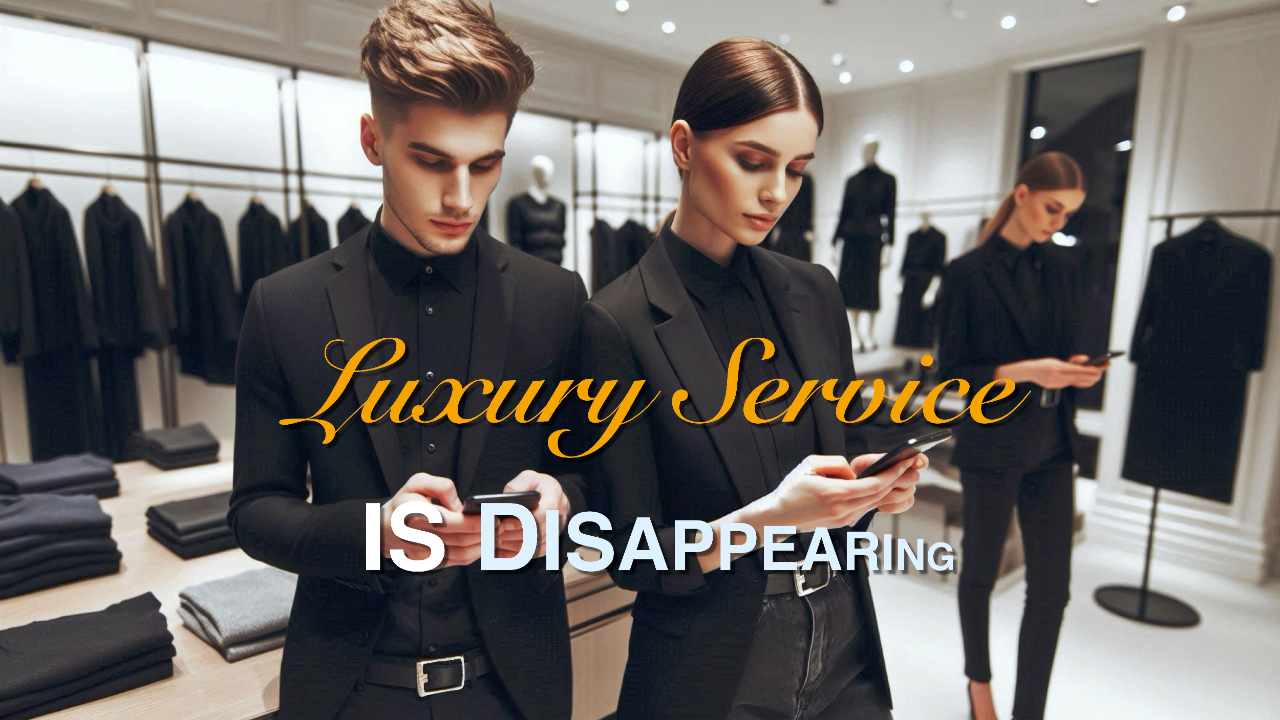Scroll Mode, All-Black Uniforms, and the Disappearing Luxury Experience

I recently visited the Houston Galleria—one of America’s premier luxury retail destinations—and left with more questions than purchases. As I walked through storied brands like Fendi, Ferragamo, Zegna, Louis Vuitton, Nordstrom, and Neiman Marcus, I expected a polished retail experience. Instead, what I observed was a widespread display of disconnection.
Roughly 90% of the sales associates I saw had their faces buried in their phones. Not tucked discreetly away. Not used briefly to check a message. Fully engrossed. In boutique after boutique, salespeople stood motionless, heads down, scrolling. I paused outside several stores just to observe how long it would take for a salesperson to look up as a customer walked in. The answer? They didn’t—at least not until the customer was right in front of them. Only then would the associate flinch into action, awkwardly pocket their phone and attempt to shift into engagement mode.
And I kept asking myself: "Why do owners and managers allow smartp...
The Neuroscience of Conversation: Why Talking is Good for Your Brain (and Your Soul)

Conversations aren't just about words. They're about connection, empathy, trust, and all the unspoken magic that happens when two people genuinely engage. Sure, you’ve probably heard the phrase, "It’s not what you say, it’s how you say it." But let’s take it further: it’s what happens in your brain when you say it.
Think about it. Why do some conversations leave you energized and others drain you? Why does talking with the right person at the right time feel like a shot of caffeine straight to the soul?
Here’s the kicker: neuroscience shows us that conversation is way more than chit-chat. It’s a workout for your brain. And like all good workouts, the results are real, even if you don’t see them right away.
What Happens in Your Brain When You Talk
Picture this: you’re deep in a meaningful conversation. Not small talk, but the kind of chat that makes you think, makes you feel. Behind the scenes, your brain is lighting up. Different parts of your brain—the prefrontal cortex, the amygd...
Courtesy Is Contagious: The Diminishing Element of Service in a Fast-Paced, Digital World

Today's world is fast-moving and so much of our communication has moved behind screens, from emails and text messages to virtual meetings and social media interactions. While technology has improved efficiency and speed, it has also chipped away at one critical element of service culture: COURTESY. Now more than ever, we need to remember that courtesy isn't just a simple gesture but the foundation of meaningful interactions and long-lasting professional relationships.
One powerful example of the timeless value of courtesy comes from the history of the Dinkler Hotels, a family legacy of my dear friend, Carling Dinkler III. In the early 20th Century, his great-grandfather, Louis Jacob Dinkler, built more than 22 hotels across the southeastern United States, each one reflecting a single guiding principle: “Courtesy Is Contagious.” Engraved on every employee’s name tag, this phrase wasn't just a tagline but a mission statement that set Dinkler Hotels apart from its competitors. It defined...


